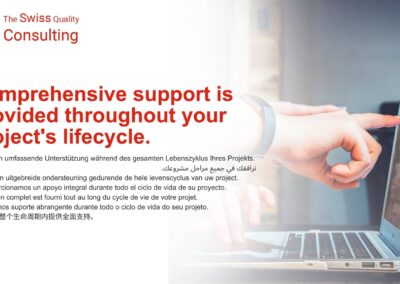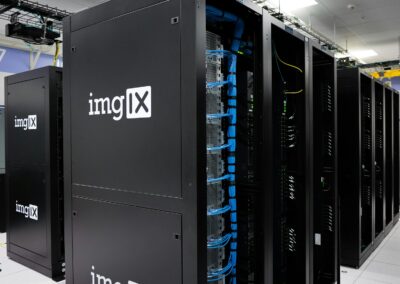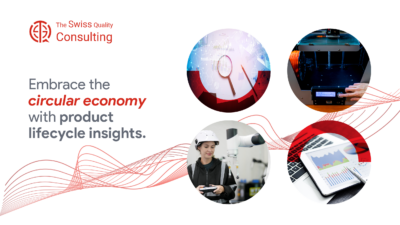Implementing Comprehensive Data Protection Measures
The Importance of Ensuring Data Privacy Throughout the Data Lifecycle
In today’s data-driven world, ensuring data privacy throughout the data lifecycle is paramount for organizations. From the moment data is collected to its analysis and eventual storage, every step must be managed with stringent privacy measures. This is particularly crucial in regions like Saudi Arabia and the UAE, where digital transformation is rapidly advancing, and data protection is a key priority.
In Saudi Arabia, the Personal Data Protection Law (PDPL) mandates comprehensive data privacy measures across all stages of data handling. This legislation underscores the importance of protecting personal information and ensures that organizations adopt best practices for data privacy. Similarly, the UAE’s Federal Decree-Law No. 45 of 2021 on the Protection of Personal Data provides a robust framework for data privacy, emphasizing the need for secure data management from collection to disposal.
Maintaining data privacy throughout the data lifecycle involves several critical steps: secure data collection, meticulous data analysis, and safe data storage. By adhering to these practices, organizations in Riyadh, Dubai, and beyond can protect sensitive information, comply with regulatory requirements, and build trust with their stakeholders.
Secure Data Collection: The First Step in Data Privacy
The journey of data privacy begins with secure data collection. Organizations must implement measures to ensure that data is collected ethically and securely, minimizing the risk of breaches from the outset. In regions like Saudi Arabia and the UAE, where digital interactions are pervasive, secure data collection is crucial for protecting personal information.
One effective strategy is to use encryption technologies during data collection. Encrypting data as it is collected ensures that even if intercepted, the information remains unreadable to unauthorized parties. Additionally, organizations should implement strict access controls to limit who can collect and access the data. This approach reduces the risk of internal threats and ensures that only authorized personnel handle sensitive information.
Transparency during data collection is also vital. Organizations must clearly communicate to users why their data is being collected, how it will be used, and who will have access to it. Providing users with this information builds trust and ensures compliance with data protection regulations in Saudi Arabia and the UAE. By prioritizing secure and transparent data collection practices, organizations can lay a strong foundation for data privacy.
Ensuring Privacy During Data Analysis
Once data is collected, the next critical phase is data analysis. During this stage, organizations must implement measures to protect the privacy of the data being analyzed. This is particularly important as data analysis often involves handling large volumes of sensitive information, which, if mishandled, can lead to significant privacy breaches.
One effective approach is to use anonymization techniques during data analysis. Anonymizing data involves removing or masking personal identifiers, making it difficult to trace the information back to individuals. This ensures that the data can be analyzed without compromising privacy. Additionally, pseudonymization, which replaces private identifiers with fake identifiers, can provide an added layer of security during data analysis.
Organizations should also employ secure data processing environments. This includes using secure servers and networks that are protected against unauthorized access and cyber threats. Implementing robust monitoring and auditing mechanisms can help detect any unauthorized attempts to access data during analysis. By adopting these practices, organizations in Riyadh and Dubai can ensure that data privacy is maintained throughout the analysis phase.
Protecting Data During Storage
The final stage of the data lifecycle is data storage. Ensuring the privacy and security of data during storage is crucial for protecting sensitive information and complying with data protection regulations. In Saudi Arabia and the UAE, where data breaches can have severe consequences, implementing secure data storage practices is essential.
One of the key strategies for secure data storage is encryption. Encrypting data before it is stored ensures that even if the storage system is compromised, the data remains unreadable to unauthorized parties. Organizations should also implement access controls to restrict who can access stored data. This includes using multi-factor authentication and regularly updating access permissions to prevent unauthorized access.
Regular data backups are also critical for secure data storage. Backups ensure that data can be recovered in the event of a system failure or data breach. Organizations should store backups in secure, off-site locations to protect against physical threats such as fire or theft. By implementing these practices, businesses in Riyadh and Dubai can ensure that data remains secure and private during storage.
Creating a Culture of Data Privacy Awareness
Executive Coaching for Data Privacy
Executive coaching plays a vital role in promoting data privacy awareness and best practices within organizations. Business leaders in Saudi Arabia and the UAE must be equipped with the knowledge and skills to implement effective data privacy measures across the entire data lifecycle. Executive coaching provides the necessary guidance to help leaders develop and enforce robust data privacy policies.
Coaching programs can help executives understand the importance of data privacy and the various strategies available to protect data from collection to storage. This includes learning about the latest advancements in data encryption, anonymization techniques, and secure data storage solutions. By staying informed about emerging threats and best practices, leaders can develop comprehensive data privacy strategies that protect sensitive information and ensure compliance with regulations.
Furthermore, executive coaching can assist leaders in fostering a culture of data privacy awareness within their organizations. This involves promoting data privacy best practices among employees and encouraging proactive measures to protect sensitive information. By creating a culture of data privacy awareness, organizations can enhance their overall security posture and reduce the risk of data breaches.
Leveraging Modern Technology for Data Privacy
Modern technology offers several tools and solutions that can enhance data privacy throughout the data lifecycle. In regions like Riyadh and Dubai, where digital innovation is a priority, leveraging these technologies can help organizations stay ahead of emerging threats and maintain a secure data environment.
Artificial Intelligence (AI) and machine learning can be used to monitor data activity and detect suspicious behavior. These technologies can identify potential security breaches and alert organizations to take action. Additionally, AI-driven tools can help manage data privacy settings and provide recommendations for enhancing data security.
Blockchain technology also offers potential solutions for data privacy. Its decentralized nature ensures that data is securely stored and protected from unauthorized access. By using blockchain-based platforms for data storage and management, organizations can maintain greater control over their data and ensure that it remains private.
Future Trends in Data Privacy
As data privacy continues to evolve, organizations must stay informed about emerging trends and technologies that can enhance their data protection strategies. In Saudi Arabia and the UAE, where data security is a top priority, adopting these trends will be essential for maintaining privacy throughout the data lifecycle.
One emerging trend is the development of privacy-focused data management platforms that prioritize user control over data. These platforms offer enhanced privacy settings and do not share data with third parties without user consent. By adopting such platforms, organizations can ensure that their data privacy practices remain robust and compliant with regulations.
Another trend is the increasing use of zero-trust security models, which assume that all network traffic is potentially malicious and require verification for every access request. This approach ensures that data is protected from internal and external threats, providing a comprehensive security framework for data privacy.
Conclusion: Ensuring Data Privacy in the Digital Age
Ensuring data privacy throughout the data lifecycle is essential for protecting sensitive information and maintaining compliance with legal and ethical standards. By implementing secure data collection, meticulous data analysis, and robust data storage practices, organizations in Saudi Arabia and the UAE can safeguard personal data and build trust with their stakeholders.
Executive coaching and modern technology play vital roles in promoting data privacy awareness and enhancing data protection strategies. As data privacy continues to evolve, staying informed about emerging trends and adopting proactive measures will be crucial for maintaining a secure data environment. By prioritizing data privacy, organizations can achieve long-term success and protect sensitive information in the digital age.
—
#DataPrivacyLifecycle, #DataProtectionStrategies, #DataCollectionSecurity, #DataAnalysisPrivacy, #DataStorageProtection, #SaudiArabiaDataSecurity, #UAEPrivacyRegulations, #RiyadhDataManagement, #DubaiDataProtection, #ExecutiveCoachingInDataSecurity























